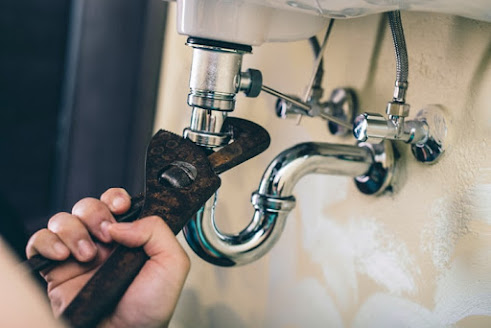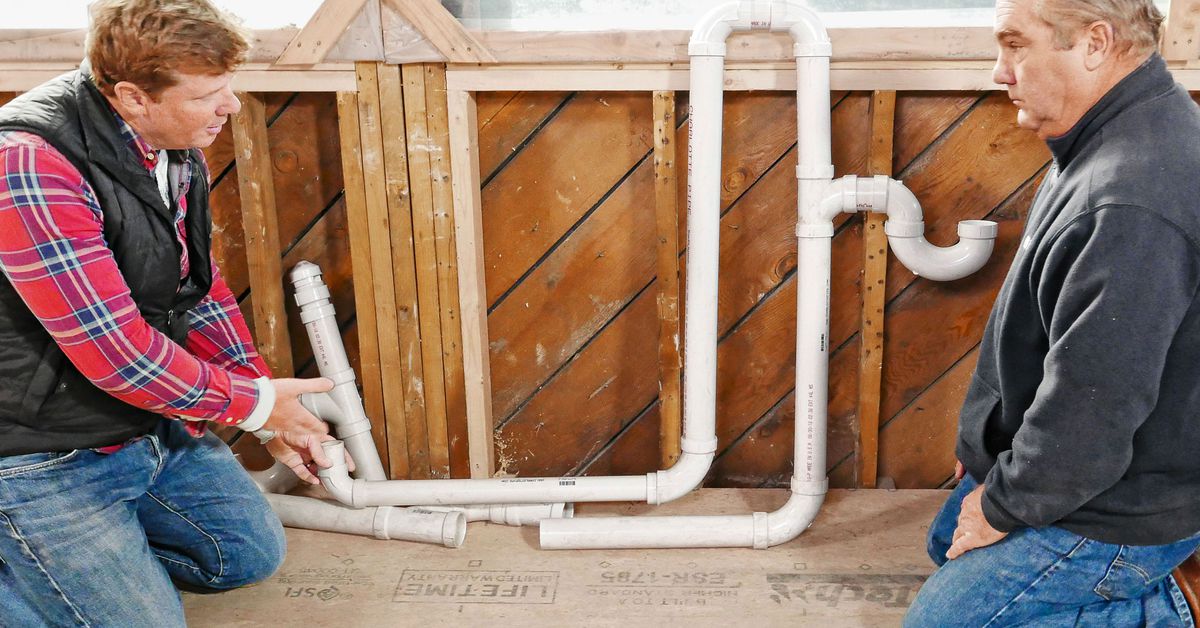Solving the Mystery of Puzzling Plumbing Sounds in Your House
Solving the Mystery of Puzzling Plumbing Sounds in Your House
Blog Article
In this article down the page you can find additional exceptional details on the subject of Why Your Water Pipes Are Noisy and How To Shut Them Up.

To detect noisy plumbing, it is essential to determine initial whether the unwanted sounds happen on the system's inlet side-in various other words, when water is turned on-or on the drain side. Sounds on the inlet side have varied reasons: excessive water pressure, used valve as well as tap components, improperly linked pumps or various other appliances, improperly positioned pipeline fasteners, and plumbing runs consisting of way too many limited bends or various other restrictions. Noises on the drain side typically come from bad place or, just like some inlet side noise, a design including tight bends.
Hissing
Hissing noise that occurs when a faucet is opened somewhat generally signals excessive water pressure. Consult your regional public utility if you suspect this problem; it will certainly have the ability to inform you the water stress in your location and also can mount a pressurereducing valve on the incoming water system pipe if essential.
Thudding
Thudding noise, often accompanied by trembling pipes, when a tap or appliance valve is turned off is a problem called water hammer. The noise as well as resonance are brought on by the reverberating wave of stress in the water, which unexpectedly has no place to go. Often opening up a valve that discharges water swiftly right into an area of piping including a constraint, joint, or tee fitting can produce the exact same condition.
Water hammer can normally be treated by setting up installations called air chambers or shock absorbers in the plumbing to which the issue shutoffs or faucets are linked. These gadgets allow the shock wave created by the halted flow of water to dissipate in the air they consist of, which (unlike water) is compressible.
Older plumbing systems may have short upright sections of capped pipe behind walls on faucet competes the very same objective; these can at some point loaded with water, reducing or destroying their effectiveness. The treatment is to drain pipes the water supply completely by shutting off the main water system shutoff and also opening all faucets. Then open up the major supply shutoff and also shut the faucets one at a time, starting with the faucet nearest the valve as well as ending with the one farthest away.
Chattering or Shrieking
Intense chattering or shrieking that happens when a valve or faucet is turned on, which generally goes away when the installation is opened completely, signals loose or defective inner components. The option is to replace the valve or tap with a new one.
Pumps and devices such as cleaning equipments and dish washers can transfer motor noise to pipes if they are incorrectly attached. Connect such items to plumbing with plastic or rubber hoses-never stiff pipe-to isolate them.
Various Other Inlet Side Noises
Squeaking, squealing, scratching, snapping, and tapping typically are triggered by the development or tightening of pipelines, normally copper ones providing warm water. The noises happen as the pipes slide against loose bolts or strike neighboring home framework. You can often pinpoint the location of the issue if the pipes are subjected; just adhere to the sound when the pipelines are making sounds. Probably you will uncover a loosened pipe hanger or an area where pipelines lie so near floor joists or various other framing items that they clatter against them. Attaching foam pipe insulation around the pipes at the point of contact should treat the trouble. Make sure straps and wall mounts are safe and provide adequate assistance. Where possible, pipeline fasteners must be attached to large architectural components such as structure wall surfaces as opposed to to mounting; doing so decreases the transmission of resonances from plumbing to surface areas that can magnify as well as transfer them. If connecting fasteners to framework is inescapable, cover pipes with insulation or other resistant product where they get in touch with fasteners, and also sandwich completions of new bolts between rubber washing machines when mounting them.
Fixing plumbing runs that suffer from flow-restricting limited or various bends is a last resort that needs to be carried out just after seeking advice from a competent plumbing service provider. Sadly, this scenario is fairly typical in older residences that might not have been developed with interior plumbing or that have actually seen numerous remodels, especially by novices.
Drainpipe Sound
On the drainpipe side of plumbing, the principal objectives are to eliminate surfaces that can be struck by dropping or rushing water and also to protect pipelines to contain unavoidable noises.
In new building, bathtubs, shower stalls, commodes, and wallmounted sinks and also basins must be set on or against durable underlayments to lower the transmission of sound with them. Water-saving toilets and taps are less noisy than conventional models; install them as opposed to older kinds even if codes in your location still permit utilizing older fixtures.
Drainpipes that do not run vertically to the cellar or that branch right into straight pipe runs supported at flooring joists or various other mounting existing especially bothersome noise problems. Such pipes are huge sufficient to radiate substantial resonance; they also lug considerable amounts of water, that makes the situation even worse. In new construction, specify cast-iron dirt pipes (the huge pipes that drain pipes commodes) if you can afford them. Their massiveness has much of the sound made by water travelling through them. Likewise, prevent directing drains in walls shown to bedrooms as well as spaces where people collect. Walls including drainpipes need to be soundproofed as was explained earlier, making use of double panels of sound-insulating fiber board as well as wallboard. Pipes themselves can be covered with special fiberglass insulation produced the purpose; such pipelines have an impervious plastic skin (sometimes containing lead). Outcomes are not constantly satisfactory.
Pipe Down! What to Do About Noisy Water Pipes
Banging
Does it sound like someone's hitting your pipes with a hammer every time you run water? The issue could be a phenomenon called water hammer, which happens when a water valve closes suddenly. You'll often hear it when your washing machine stops filling, for example. The momentum and pressure from the water flowing toward the valve create the shockwave that causes the banging noise when the valve closes suddenly. It might not seem like a big deal, but water hammer can cause damage to your pipes, including leaks and joint damage.
One way to ease water hammer is by installing water hammer arrestors. Your plumber can install them near major valves to help cushion the shock of the water when it suddenly stops or changes direction. You might also need to reduce the water pressure coming into your home with the pressure-reducing valve.
Gurgling
Gurgling sounds typically come from drainpipes. This sound happens when the water can't drain properly, usually when there's a clog in the water pipes. Drain clogs often happen due to hair, grease, soap scum or objects that fall down the drain. They can happen suddenly or build up slowly over time.
You can sometimes clear a clogged drainpipe with a plunger to help force the clog through the pipe. A plumbing snake or an auger can also help break up tough clogs. A common plumbing myth is that chemical drain cleaners are safe and effective, but they often don't work and contain harsh chemicals that can hurt you and your plumbing. If you can't remove the clog with a plunger or snake, it's best to call a plumber to help.
Rattling
Water travels through your pipes with lots of pressure, so the pipes are bound to move a little. Pipes should be secured well to keep them from moving too much when water runs through them. If they're not properly fastened or the fasteners come loose, you might hear them rattling when you run water.
Resecuring the pipes can cut down on the rattling noise and prevent damage to the joints of the water pipes. However, many pipes run behind walls where you can't easily access them. A plumber can help determine if loose fasteners are the cause of the rattling and resecure them if necessary.
Humming
If your pipes sound like they're humming, it's likely a water pressure issue. When the water pressure is high, it can cause the water pipes to vibrate and create a humming sound. High water pressure is more common if you have a well for your water, but it can happen with municipal water as well. High water pressure can damage your plumbing and cause leaks.
If you have a well, check the pressure to ensure it's below 55 pounds per square inch. A plumber can test the pressure for you and help adjust the issue if you're not sure how to do it yourself. If you're connected to the municipal water source, your home likely has a pressure-reducing valve near where the water enters your home. You can adjust the screw in the valve to decrease the pressure, but be careful not to lower it too much.
Squeaking
Squeaking or squealing is another common sound you'll hear in your water pipes. This often happens if small components within the plumbing, such as washers or aerators, become loose, dirty or damaged. When this is the cause, the squeaking sound is usually confined to a certain fixture or area of plumbing. Replaced or repairing the part should solve the noise.
If you can hear the squealing sound everywhere in your home, it could be an issue with water pressure. Buildup in the pipes narrows the space for the water, which can cause squealing as the water tries to squeeze through the pipes. Wear and tear on the plumbing system can also cause whistling or squeaking. These situations typically require a professional plumber to diagnose and repair.
https://www.homeserve.com/en-us/blog/home-improvement/water-pipes-making-noise/

Do you really like reading about Why Do My Pipes Make Noises? Write feedback further down. We will be pleased to listen to your thinking about this blog. We hope to see you back again soon. Do you know about another person who is in the market for the niche? Do not hesitate to promote it. Many thanks for going through it.
Schedule An Appointment Report this page